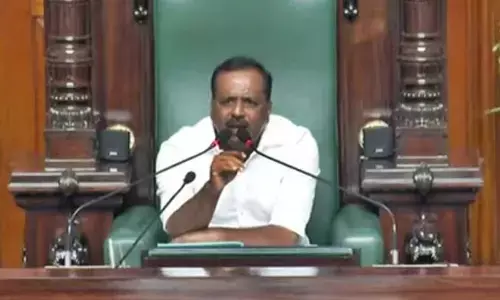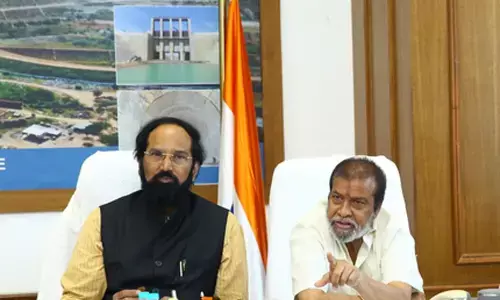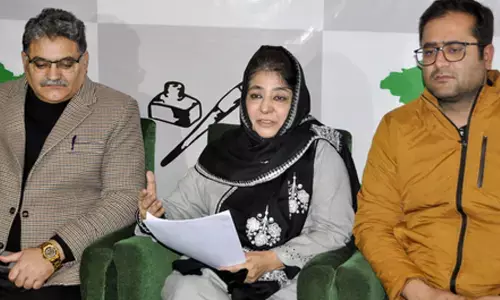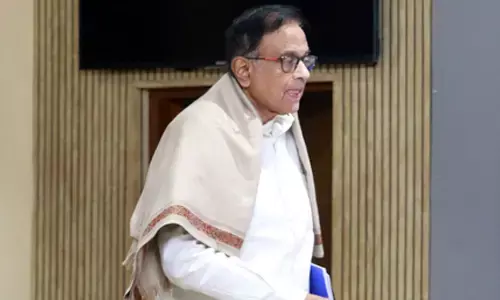Are farm loan waivers really so bad?
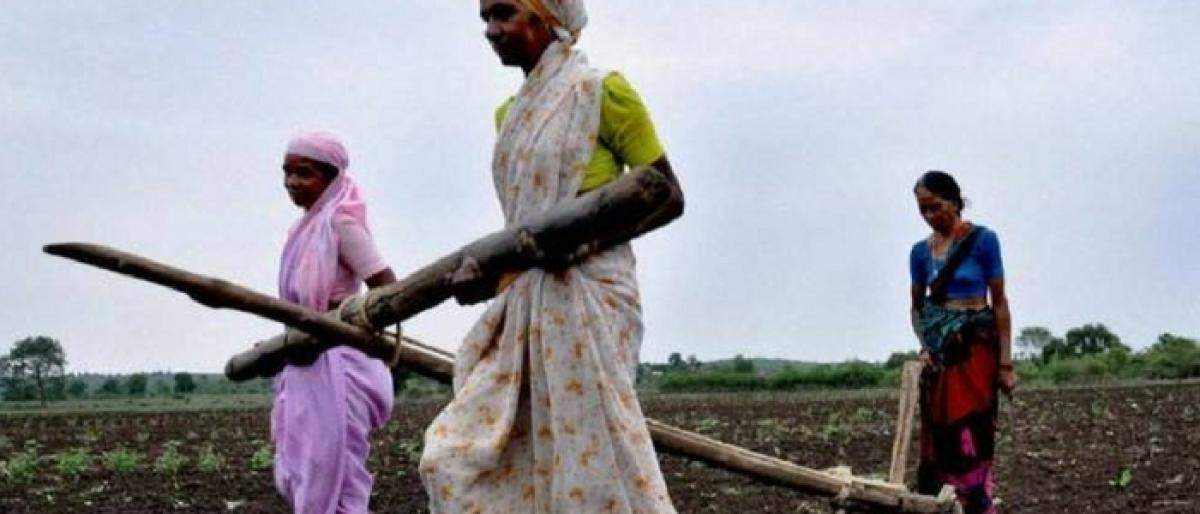
In the last couple of months, the pink press in India has gone to town against a series of announcements by various state governments declaring their intent to waive farm loans to a greater or lesser extent. It all began with the newly elected Chief Minister of Uttar Pradesh (UP) making this his first substantive economic announcement, in keeping with his party’s manifesto,
In the last couple of months, the pink press in India has gone to town against a series of announcements by various state governments declaring their intent to waive farm loans to a greater or lesser extent. It all began with the newly elected Chief Minister of Uttar Pradesh (UP) making this his first substantive economic announcement, in keeping with his party’s manifesto, despite the fact that there was no overt demand from UP farmers at that stage. Since then, farmer agitations and suicides have snowballed across the country compelling one state government after another to consider this as a serious option for relieving farmers’ distress.
Oddly enough, the media and other commentators recognise the reality of farmers’ distress, but take serious exception to farm loan waivers as a means of addressing the problem. The position taken by India’s elite is best summed up in the words of the Governor of the Reserve Bank of India (RBI): “I think it (farm loan waiver) undermines an honest credit culture, it impacts credit discipline, it blunts incentives for future borrowers to repay, in other words, waivers engender moral hazard. It also entails at the end of the day transfer from tax payers to borrowers.
If on account of this, overall government borrowing goes up, yields on government bonds also are impacted. Thereafter it can also lead to the crowding out of private borrowers as higher government borrowing can lead to an increase in cost of borrowing for others. I think we need to create a consensus such that loan waiver promises are eschewed, otherwise sub-sovereign fiscal challenges in this context could eventually affect the national balance sheet.” (Press Conference, 6 April 2017).
These are ominous words. Different aspects of this view have been picked up by different interlocutors to create a new and frightening urban legend. What is worrisome is that no one seems to have deemed it fit to critically examine the validity of these claims in the very specific context in which the loan waivers are being considered. Perhaps it is time to do so…
Credit culture and moral hazard
We do not need to go too far back to assess the impact of waivers on farmers’ willingness to repay – the last such incident was in 2009-10, when the country was hit by the worst drought in 35 years. In the seven years that have passed since then, there is no evidence whatsoever that farm loan repayments have slackened in any sense or that repeated demands are being made for waivers, not even during the two-year drought period of 2014-2016.
This feature has in fact been true post every farm loan waiver in the past. In other words, there is no empirical support for the proposition that such waivers seriously erode farmers’ ‘credit culture.’ Trotting out this argument purely as a theoretical proposition without any empirical support raises serious doubts about the attitudes of the interlocutors…Such farm loan waivers are never granted to individual farmers, but to farmers as a class by a third party, namely the government. Thus, if any individual farmer does not repay his loan on the expectation that the loan will be waived, he is exposing himself to the normal consequences of loan default if the government does not oblige.
Given the history, it is pertinent to ask why this demand is being made now. Is it an indicator of deteriorating credit culture? The answer is no. The policy framework for farm loans has a provision that in cases where the central government declares a drought, farm loans are rolled over, initially for a year, and up to a maximum of three years. This is not a blanket provision.
It applies only to farmers in officially designated “affected districts.” This provision had been invoked during the last two drought years, thereby alleviating farmer distress to some extent. The year 2016-17 is different. There was no drought or any other natural calamity. The farmers’ problems are almost entirely the outcome of demonetisation, which means that there was no clear geographical demarcation, that is, practically all farmers have suffered, and there has been no rolling over of their loans.
As a consequence, farmers across the country have to either agitate or face the prospect of default. This is not a case of weakening credit culture or of moral hazard. It is the outcome of the simple fact that: while the government is willing to provide for ‘acts of God’, it is not willing to do so for an ‘act of State’ or force majeure. If anything, the State is in denial.
If loans are not waived…
What about the economic consequences? Agricultural loans by banks in India are compulsorily insured by the Agricultural Insurance Company of India (AIC), which means that even if loans are not waived, there is no loss to banks… (AIC) Its liabilities are back-stopped by the central government through budgetary support.
Therefore, in situations where farmer distress is widespread and acute enough to lead to substantial defaults, the Centre will have to step in and provide the necessary funds. This too will entail “transfer from tax payers to borrowers” and increased “overall government borrowing.” The difference is that while loan waivers are borne by states, defaults are borne by the Centre.
The second, and more important, difference is that while waivers absolve the farmer of all liability, defaults entail serious consequences such as loss of collateral, if any, and loss of access to future bank loans…‘Diversification’ has been the mool mantra of the government’s agriculture policy for at least the last 20 years.
This is not just a strategy for improving farmer livelihoods, it is essential for providing the products that are increasingly demanded as incomes rise, especially in urban areas…Any shift away from subsistence farming necessarily entails the farmers investing much more and taking higher risks than they would have otherwise. Traditional sources of farm finance, such as moneylenders, can neither provide the requisite volume of funds nor do they allow enough margins to make risk-taking worthwhile.
Shutting out a large number of farmers from access to formal credit and pushing them back into the arms of moneylenders can, therefore, set back the process of agricultural commercialisation and diversification, with its attendant implication on food inflation.
The choice is clear: on the one hand, there is the RBI Governor’s doomsday scenario; and, on the other, the prospect of sustained food inflation and the consequent tight monetary policy. On the economic front, therefore, it appears to be a Hobson’s choice, but on the ethical front it is a no-brainer.
The ‘sub-sovereign’ dilemma
There is a certain ‘holier than thou’ flavour to the words of the RBI Governor which finds echo in the Finance Minister’s flat refusal to assist the states with the loan waivers. This is cynical at best, since there is now a consensus that the present crisis is largely the outcome of demonetisation, in which both the Minister and the Governor were complicit. It almost equals in arrogance the famous American dictum: “it may be our currency, but it’s your problem”.
At the heart of this problem are Constitutional provisions whereby the health of the banks is the Centre’s concern while the health of the farmers is that of the states. This division of responsibility is asymmetric in that if states protect the interests of farmers, they also protect the banks; while the Centre can protect the banks without concern for the farmers. As a result, the ball is always in the states’ court, and the Centre can simply stand back and watch if it so desires.
This state of affairs is not conducive to the health of the country as a whole. The Centre and states need to work together to evolve a farm loan model which protects both the farmers and the banks without bringing politics into it. This is the essence of ‘cooperative federalism’ that this government sets such store by. Until such time, farm loan waivers need to be viewed less ideologically and with more compassion.
By: Pronab Sen
(Reprinted with permission from Ideas for India www.ideasforindia.in)


